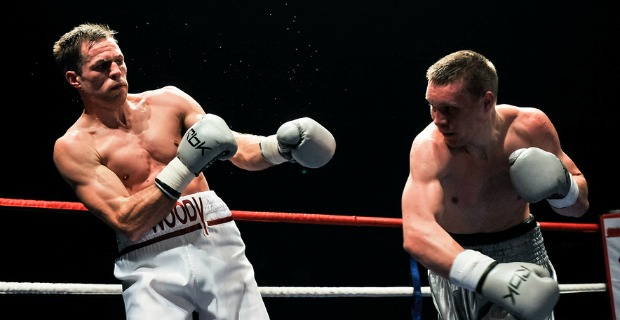You have no items in your cart. Want to get some nice things?
Go shopping
The most difficult part of writing a novel about boxing is that a novel about boxing is not really about boxing at all.
A few months ago I sat down to start my fourth novel. For the past year or so I’d kept the idea of an Olympic Boxer on the back burner, writing notes to myself, watching fights, and reading books on boxing. What I came away with at the end of my year of study was that whatever happens in the ring doesn’t matter. Winning or losing doesn’t matter in the larger sense of a life. The fight is the test at the end of a long study period. It is the result or culmination of many disparate events in a boxer’s life that have led him to this final present moment.
Life keeps going.
The fight is only a moment for a boxer—a series of rounds—that have already been constructed from other moments and that have led to this one point. And in turn that life will continue after the fight. And perhaps there will be more fights, or maybe there won’t, but it is the lead up to the fight which reveals who the boxer is over anything that is ever achieved in the ring.
If I can, I want to look away from the ring for a moment and I want to bring in another type of athlete. I want to talk about a mountain climber. In writing there has always been plot—the scrape of white chalk on a blackboard leading a character toward the dénouement. The mountain climber will climb many peaks in his life and each of those peaks will rise up off that chalk line like a mountain coming up off a plain. The mountain becoming steeper as it rises in altitude and the climber’s struggles increasing with each step toward the peak. This climber may slip. He may fall, he might hurt himself, he may cry out in pain, but above all he will keep going because everything he has done up until this point has been for this.
Boxers, like mountain climbers, must climb peaks. The boxer’s peak may be a gold medal in the Olympics, or a welterweight title, or even a cash prize. It can be many things but in the end all of these boxers will have to fight the same struggle to make it to the top.
My own peaks have been the three novels I’ve written. Each of them with their own set of challenges, slips, falls, mistakes, and successes. And in the course of writing each I also learned a great deal about writing. I learned about character and what aspects of my characters appealed to me. And more often than not it was not the characters themselves that interested me, but what those characters had to overcome in order to change from who they were at the beginning of the novel to who they were at the end.
I have found that writing about boxing is not like writing about other professional sports. The boxer is solely responsible in ways that others cannot be. The goaltender on a soccer team, the quarterback of a football team, or the pitcher on the mound all come close to what the boxer must feel in the ring. But wherever they stand and whoever they are, they always stand with their team. While the boxer must—from moment to moment—slip from offence to defence and back again, alone on his own team.
Boxers, like writers, are alone in the world. They are supported in many ways by those around them but they are also more alone than most. Finding a good character is essential to finding a good story, and finding a good character has a lot to do with the thoughts and feelings of the reader, and how those thoughts and feelings are inflected back upon the character.
A reader must sympathise in some way with the plight of the character. Boxing has drawn me in not because of the way the sport in its extremes can be seen as a world event, but rather for the ways it achieves its solitude. One boxer standing alone in a gym that smells of sweat and wet rags, of mould and dust, as he pivots, bouncing from toe to toe in rhythm with the beat of his fists against the bag.
This boxer wears tape across his knuckles. He wears an old set of gym shorts and a worn grey t-shirt speckled with his own sweat. But on top of this he also wears his own expectations. He wears the expectations of others—the expectations of his wife or his friends, his country, his trainers, and even those who stand watching him from afar. He feels them all there in the room with him like his own robe across his shoulders as he approaches the ring.
Urban Waite’s novels are available from Foyles for books, and all good bookshops.

About Urban Waite
Urban Waite is a good guy who writes evil things (or maybe vice versa). He is the author of The Terror of Living, named one of Esquire's Ten Best Books of the year. His latest book is Dead If I Don't (published as The Carrion Birds in the US), a finalist for the New Mexico and Arizona Book Award, and the recipient of starred reviews from Publishers Weekly and Booklist. His short fiction has appeared in the Best of the West anthology, the Southern Review, and many other journals. He has degrees from the University of Washington, Western Washington University, and Emerson College. His third novel, a sequel to The Terror of Living, will be released fall 2014 from Simon and Schuster UK.




nn